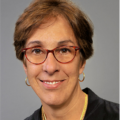Power matters. Almost every week, it seems we hear about abuse in the international development world. Whether it is UN personnel extracting sexual favors from women needing food or INGO leadership turning a blind eye to blatant sexism or racism in their ranks, these scandals are happening because there are huge power imbalances we have yet to address properly.
Since colonial times, these imbalances have been with us, and thankfully, we are now being forced to address them head-on. COVID-19 is casting a bright light on structural imbalances between racial groups in the U.S. and across the world. The Black Lives Matter movement is catalyzing conversations about structural racial inequality in our country. All of these events are forcing a reckoning about embedded racial inequities and lack of diversity in our global development sector.
Whether it’s about safeguarding the people we seek to help or ensuring our organizations are not replicating the inequities we want to eliminate, we have to address power imbalances with honesty and practical action. Challenging harmful gender norms, systemic racism and exclusionary power structures are things we in the international development sector happily build into projects we implement. Yet, these are not things we tend to welcome at our doorstep when it comes to our internal operations.
Over the last year, Plan International USA, in partnership with Radiant International, put every aspect of Plan’s operations under a diversity, equity and inclusion microscope. Here are three things we know we must do:
Ensure everyone who is touched by our work can speak up, be heard, and receive help if they experience abuse or unethical behavior. We must make sure the children and families with whom we work, as well as our entire organizational team, know exactly what to do and where to go if they experience or see abuse, harassment, or other unethical behaviors. Power isn’t shared if we are not willing to be accountable for our individual and collective actions. We are strengthening our processes, tools, and communications to ensure that we learn about and address problems early.
Bring the people we serve into influential positions in the organization. We need to share power with the people we partner with and work for around the world. This requires changing how we recruit and retain staff at all levels, how we ensure equity in promotions and advancement, and how we select our executive teams and governing boards. Since Plan works with young people, it includes young people on its board of directors, but that’s not enough. At present, a staff team is altering recruiting practices, a pay equity review is underway, and the board is engaging with former sponsored children to find new directors. But we know we need to do much more.
Build the knowledge, attitudes, and skills to share power and grow inclusion. Just as we came to see gender equity as a goal and a set of hard technical skills to reach that goal, we need to build our teams’ skills to ensure every aspect of our business and programming is authentically inclusive. This means ensuring that everyone understands core concepts like unconscious bias, structural racism, and tokenism, as well as building capacities in areas like human-centered design; agile practices; diversity, equity and inclusion; and issues that affect the LGBTQI+ and disability communities. Plan recently launched a new professional development program open to all staff to encourage skills development in these areas. Time will tell how this program impacts our operations.
Finally, the one thing we must not do. Addressing the long-standing inequities in development through power-sharing is not a fad. Like it or not, our sector is being pushed toward 360-degree accountability, locally-led development and community ownership—all are about power-sharing. Doing nothing is not an option if we want our organization to remain relevant.
About the authors:
Dr. Tessie San Martin leads Plan International USA, an international humanitarian and development organization that partners with adolescent girls, children, and donors around the world to overcome oppression and gender inequality. She has more than 30 years of experience working as an executive in international development, focused especially on economic growth and political reform, including work in public and private sectors, bilateral and multilateral development agencies, and academia.
Ritu Sharma is the founder and president of Radiant International, a small, woman- and minority-owned business that advances gender, diversity, equity and inclusion in global development. Prior to Radiant, Ritu was the Director of the Center for Gender and Youth at the International Youth Foundation and founder and president of Women Thrive Worldwide.


